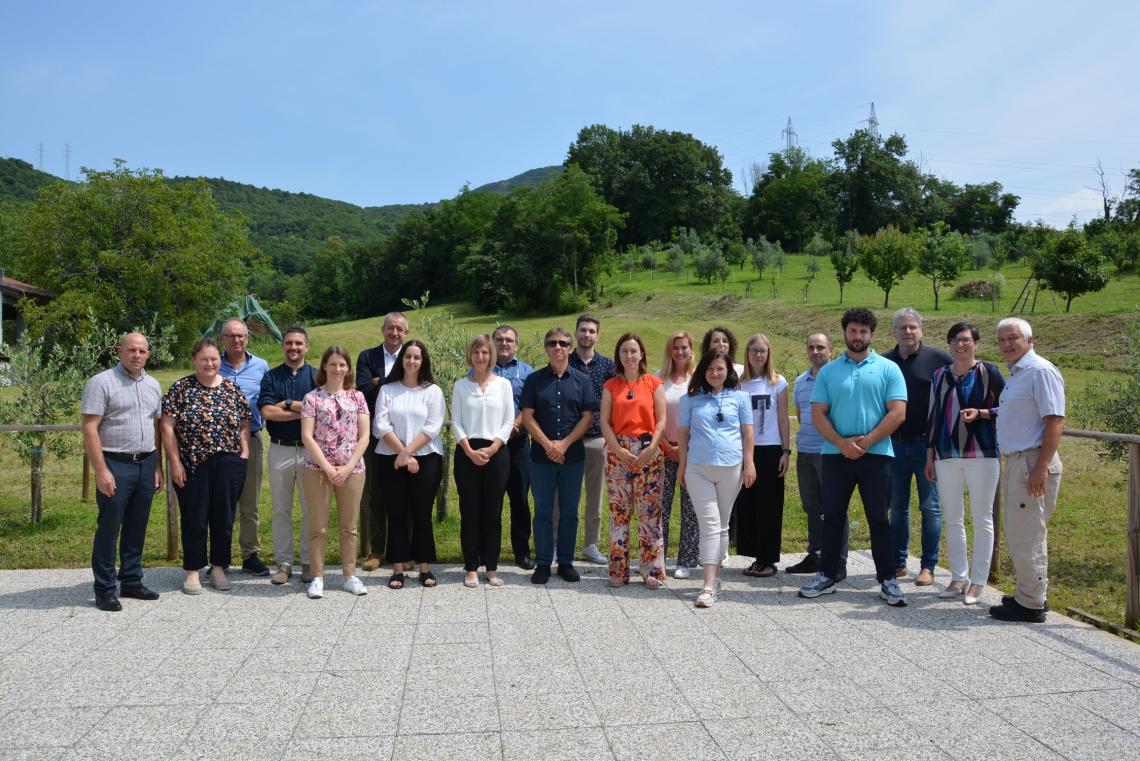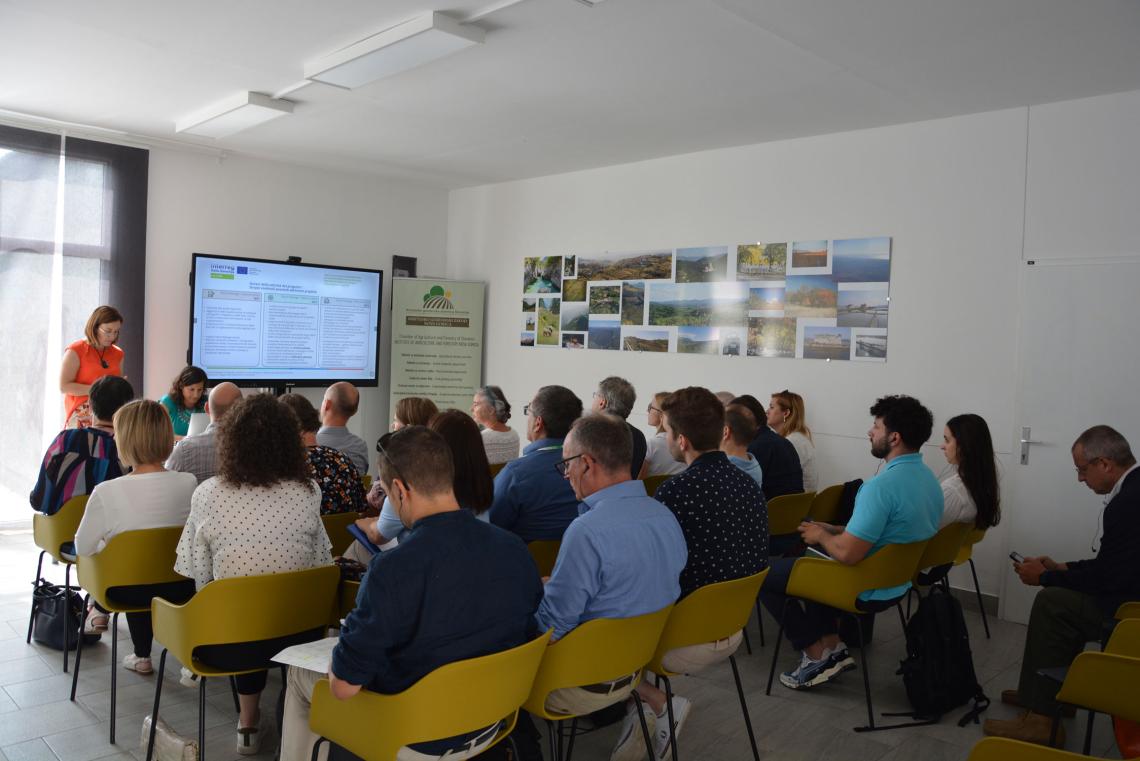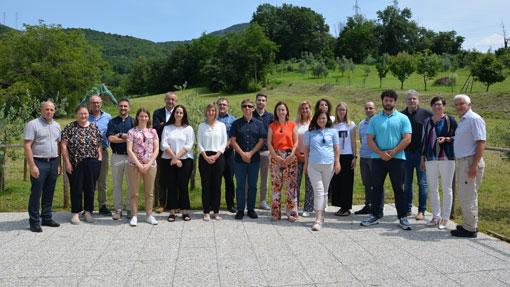The Kick-off Meeting of Ero-STOP, a strategic project of the Interreg Italy - Slovenia 2021-2027 Program (www.ita-slo.eu/ero-stop), was held on Tuesday 18 June 2024 at the headquarters of the Agroforestry Institute in Nova Gorica (Slovenia).
The meeting, organized by the Lead Partner of the project - the Forestry Agricultural Chamber of Slovenia Istituto Agrario Forestale Nova Gorica (SLO), was attended by representatives of all the partners from Italy and Slovenia: the Municipality of Ajdovščina (SLO), the Municipality of Duino Aurisina (ITA), VeGAL - GAL Venezia Orientale (ITA), University of Ljubljana (SLO), IUAV University of Venice (ITA). Furthermore, representatives of the Slovenian associated partners were also present: the ROD Regional Development Agency and the Slovenian Ministry of Agricultural, Forestry and Food Policies.
The meeting was fundamental in allowing the partners to get to know each other and coordinate upcoming activities. Furthermore, the main general rules of the program were presented, in particular regarding the importance of timing and financial management.
The Ero-STOP project, lasting 2 years, is co-financed by the European Union for approximately 1 million euros as part of the Interreg VI-A Italy-Slovenia Programme.
The general objective of the project is the establishment of a body composed of a group of cross-border experts who can be involved and consulted to resolve the most complex cases of erosion. Furthermore, a cross-border action plan will be created for the implementation of preventive and corrective actions in non-urban areas subjected to or already affected by erosion phenomena.
The next activities of the project will be held between September and October this year and include 3 study visits on pilot activities of good practices relating to soil erosion: two in the Italian area and one in the Slovenian area. By observing good practices, project partners will gain knowledge on how erosion problems have been addressed in other areas, thus gaining new knowledge useful for developing corrective measures in different contexts.



